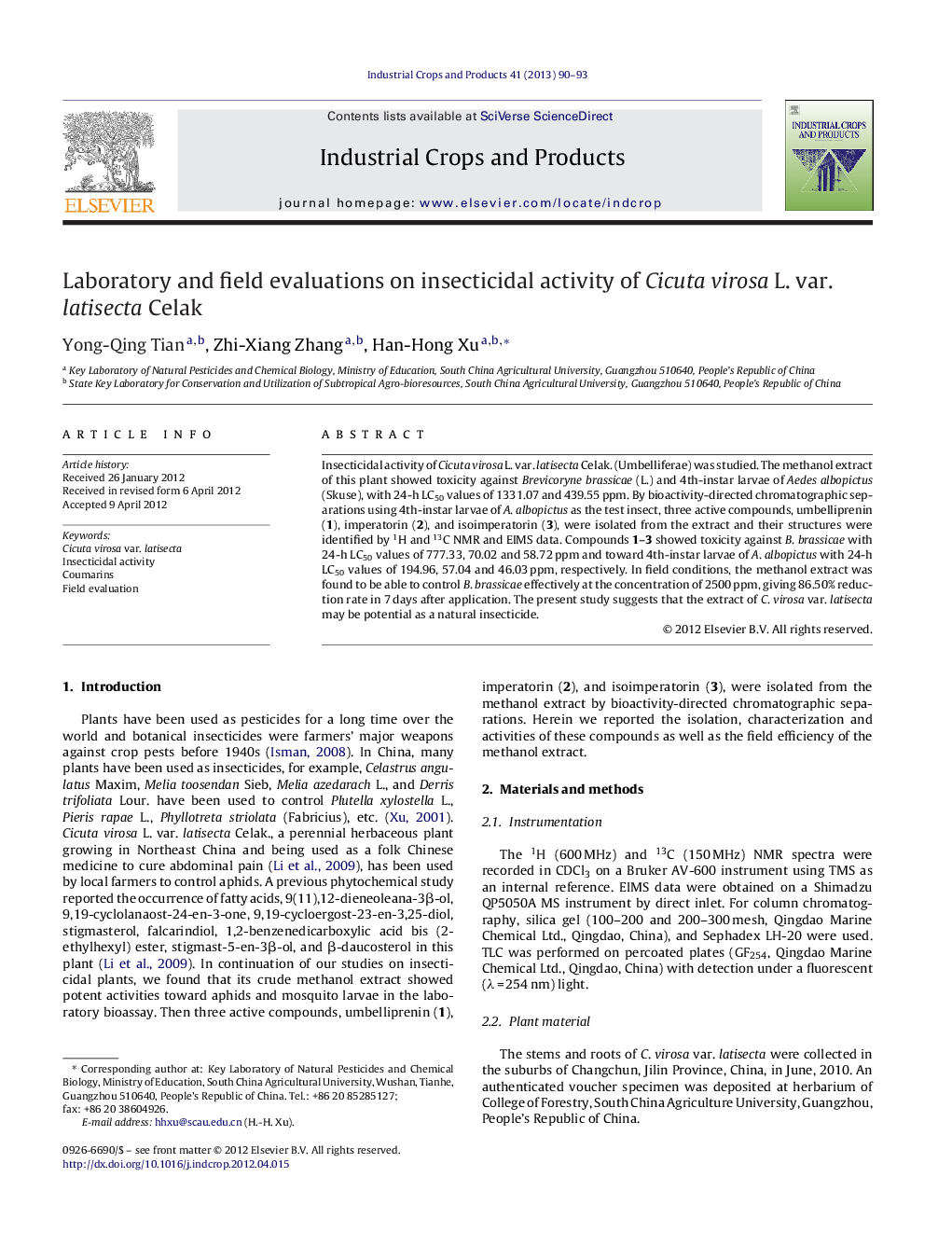| Article ID | Journal | Published Year | Pages | File Type |
|---|---|---|---|---|
| 4513894 | Industrial Crops and Products | 2013 | 4 Pages |
Insecticidal activity of Cicuta virosa L. var. latisecta Celak. (Umbelliferae) was studied. The methanol extract of this plant showed toxicity against Brevicoryne brassicae (L.) and 4th-instar larvae of Aedes albopictus (Skuse), with 24-h LC50 values of 1331.07 and 439.55 ppm. By bioactivity-directed chromatographic separations using 4th-instar larvae of A. albopictus as the test insect, three active compounds, umbelliprenin (1), imperatorin (2), and isoimperatorin (3), were isolated from the extract and their structures were identified by 1H and 13C NMR and EIMS data. Compounds 1–3 showed toxicity against B. brassicae with 24-h LC50 values of 777.33, 70.02 and 58.72 ppm and toward 4th-instar larvae of A. albopictus with 24-h LC50 values of 194.96, 57.04 and 46.03 ppm, respectively. In field conditions, the methanol extract was found to be able to control B. brassicae effectively at the concentration of 2500 ppm, giving 86.50% reduction rate in 7 days after application. The present study suggests that the extract of C. virosa var. latisecta may be potential as a natural insecticide.
► Three insecticidal compounds, umbelliprenin, imperatorin, isoimperatorin, were isolated from the methanol extract of root and stem of Cicuta virosa L. var. latisecta Celak, which showed potent toxicity against Brevicoryne brassicae (L.) and 4th-instar larvae of Aedes albopictus (Skuse). ► The methanol extract of C. virosa L. var. latisecta Celak could control B. brassicae (L.) efficiently in field conditions. ► C. virosa L. var. latisecta Celak could be explored as environmentally friendly insecticide.
